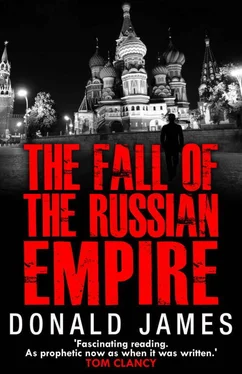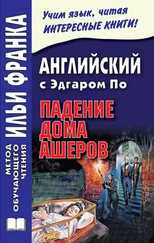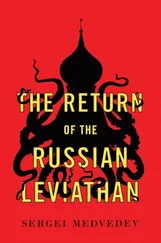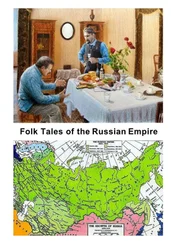I no longer remember where we were going that night, my friend and I. To the Poet’s Café, I suppose, which is where we usually spent our Saturday nights, ogling the boys, and blushingly contemptuous if they dared make an approach.
I know we had passed the Admiralty before we were aware of people bustling past us, talking in high voices. By the time we drew level with the monument some people were running, slipping in the snow, supporting each other, but hurrying on. Because it was the Soviet Union in the mid-eighties we immediately thought some shop had received a consignment of Hungarian shoes, or Czech dresses. We began to run, too, infected by the excitement in the air. Whatever it was, was happening in St Isaac’s Square.
So we came to the Blue Bridge where the crowd had gathered. And as we joined them, breathless, laughing, we were aware of a change of mood. People turned angrily and told us to be quiet, to show respect.
I lost touch with my friend as I pushed and eased my way forward. There was no laughter here. I was among silent figures, some of them, I noticed, with tears running down their cheeks.
“What is it?” I asked the people around me. “What’s happening?”
“A workers’ demonstration,” someone said as I pushed closer. Over the heads of the watching crowd I could see forty, perhaps fifty men on the Blue Bridge itself, pacing in a wide circle, their hands behind their backs, a placard round each man’s neck. And on each placard a price — a hundred rubles, eighty, ten…
“In the old days before the Revolution,” a voice whispered next to me, “the Blue Bridge was the main serf market in the city.”
Did I understand that these men were saying that they were the serfs of our own Soviet system? Did I understand that they were saying that the vlasti , the men of power and importance, were still a race apart with their corrupt and privileged existence, and that the workers were their serfs?
I think I only really understood the silent sadness of the men on the bridge. Part of the crowd behind me had begun to sing quietly, an old haunting song that perhaps I’d heard somewhere in childhood. It touched me deeply and I was moved to tears as I watched the slow pacing of the demonstrators.
Then from the far side of the circle of demonstrators a man stepped out of line and walked toward a rough podium of wooden crates which had been placed in the middle of the Blue Bridge. To this day I can remember the shock of recognition as that short, broad-shouldered figure climbed onto the wooden crates. As the crowd fell silent, it was my father who prepared to address them.
“Citizens of Leningrad,” he began, “Comrade citizens of this Hero City, our protest tonight is on behalf of all who are suffering at the hands of the distant bureaucrats who run our lives. It is on behalf of the women who spend hours of every day of their lives standing in line for such luxuries as a light bulb or a packet of washing powder. It is on behalf of their husbands unable, for fear, to raise their voices against the corruption of official trade union leaders with their dachas, their whores and their Western clothes. It is on behalf of the young people of Leningrad for whom there is no future unless they are prepared to join the very ranks of the corrupt bureaucrats themselves. But most of all this protest, the first I promise you of many, is on behalf of the men, our worker comrades, illegally exiled or enslaved for claiming those very rights that are guaranteed to us by the Soviet Constitution…”
My attention was so riveted by what my father was saying that I hardly felt the insistent nudging of the old man next to me.
“Get along home, girl,” he said urgently. “There’s going to be trouble.” He was looking toward the cathedral as he spoke. I turned my head quickly in the same direction. A line of men in helmets and long green overcoats was moving across the square. Behind them a second line of KGB guards was emerging from the cathedral shadows.
With what seemed a single fearful intake of breath, the crowd drew back. My father continued to speak as people turned away and began to surge past me.
I fought against the flow of the crowd, glimpsing between swiftly moving heads the two lines of KGB guards moving toward the demonstrators. Thrusting people aside, I clawed my way forward shouting my empty warnings to my father.
Of course the men had seen the guards. But they stood their ground as the crowd streamed back toward the river.
Then the guards struck. With silent determined fury they fell on the demonstrators, clubbing them around the head and shoulders with long black batons. I ran forward slipping, screaming as my father was pulled down, but I was thrown back by other guards who had now formed a double line between us and the grunts and shouts and bloodied snow on the bridge. Between the green greatcoats I caught snatches of a brutality which will live with me forever. I saw my father clubbed where he lay. I saw a workmate of his whom I recognized, kicked to the ground by a ring of guards as he tried again and again to scramble to his feet. I saw their loose-chained dogs tearing at fallen men.
When the trucks came I watched helplessly as the guards loaded the broken men. Hardly one of the demonstrators could stand unaided after five violent minutes.
I barely remember the other guards marching away. I found myself sitting on a worn carriage stone at the entrance to the cathedral yard with the old man patting my shoulder and advising me to go home. It was vital, he kept saying, to tell my mother as soon as possible. Demonstrators’ wives and families should go in force to the militia station. It was the only hope for some of the men.
Well, the long and the short of it is that that evening I grew up. For most girls maturity begins when they lose their virginity. Not for me — that seemed a very small thing compared with telling my mother what had happened. And then going down with her, morning and evening, day after day, to the gray-stone militia station on Praskoye Street. And worst of all, being greeted with no information whatsoever. They could neither confirm, they said, nor deny, that my father was under arrest. They had no details of an anti-Soviet demonstration on the Blue Bridge and no record of arrests.
Fifty men simply vanished. Fifty men might never be seen again. But in those awful days of contemptuous denials at the militia station, I became a different person. For the authorities I conceived a festering hatred. As I said, I grew up.
* * *
Water dripped from the walls of the old brick tunnels and swirled around the high rubber boots of the inspection team as they waded forward among the bobbing segments of black ice. The beam of Engineer Ovsenko’s flashlight probed the arched vaults ahead. Where a crack in the brickwork was revealed, the inspection team’s rough timber raft, piled with sand and cement, was hauled forward and made fast to an iron ring. In the light of the kerosene lamps attached to the corner posts of the raft, men mixed the mortar and carried it in wooden hods, wading across to where ladders had been set up against the weeping brickwork.
In Leningrad the first week of the thaw is traditionally the time to repair the ravages of the winter’s ice. Stone bastions of the countless bridges and the vaulted foundations of palaces along the River Neva are all examined for the damage that only spring reveals. The damage can show itself in long dark splits in the ancient brickwork, or whole blocks of stone thrust out of position by the winter’s buildup of ice.
Among the cavernous foundations of the Peter Paul Fortress, knee-deep in the still freezing water, Engineer Anton Ovsenko’s twelve-man inspection team cemented the crumbling brickwork and levered stone blocks back into position. Sweat poured from their faces, though their legs remained numb with cold. They had worked without stopping since the early morning, and by three o’clock in the afternoon they had already fulfilled their day’s norm. The three tunnels allocated to them had been inspected and the ice damage repaired.
Читать дальше












